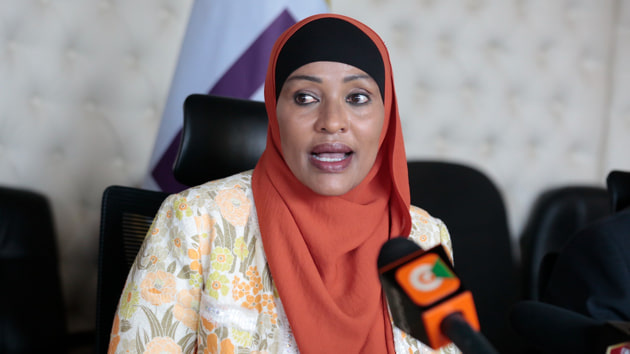STATEMENT ON THE INTERNATIONAL DAY OF ZERO TOLERANCE FOR FGM 2025
The National Gender and Equality Commission joins Kenya and the rest of the world in commemorating the International Day of Zero Tolerance for Female Genital Mutilation. This day is marked on the 6th day of February each year to advocate for intensified global efforts to eradicate Female Genital Mutilation (FGM) by 2030 in line with efforts towards the achievement of Sustainable Development Goal 5. The theme for 2025 is ‘Stepping up the Pace; Strengthening Alliances and Building Movements to End FGM’.
Female Genital Mutilation (FGM) is principally a violation of the rights of women and girls and by extension limitation of child rights. It is deeply rooted in cultural, social, contemporary, and in some cases, religious traditions. Around the world, over 230 million girls and women have been cut, with Africa accounting for the largest share, estimated at over 144 million (UNICEF, 2024). The practice harms the physical, social, and emotional well-being of women and girls and the family. It contravenes the principles of equality and non-discrimination, the right to life, the right to freedom from torture and cruel, inhuman, or degrading treatment or punishment, and a child's right to protection from harm, and the right to play and recreation.
In Kenya, significant efforts have been made in reducing the prevalence of FGM. The Kenya Demographic and Health Survey (KDHS) 2022 indicates that 15% of women aged 15-49 have undergone FGM, reflecting a steady decline from 38% in 1998, 32% in 2003, and 21% in 2014. The downward trend is attributed to substantial investments in programmatic intervention and strong policy and legal frameworks, including the Prohibition of Female Genital Mutilation Act (2011), the Children Act (2022), the National Policy on Abandonment of FGM (2019), the Presidential Directive (2019) and may community-based initiatives. Variations are, however, noted across regions, counties, and among communities, with some areas reporting prevalence rates that are five or more times higher than the national average. For instance, Bomet County reported an FGM prevalence of 23%, surpassing the national rate, while the larger North Eastern region recorded an alarming prevalence of 97.5%, compared to just 0.8% in the larger Western region.
Emerging threats such as medicalization of FGM, cross-border circumcision, self-inflicted cutting by girls and sisters, secret FGM-related rituals among some communities, digital platforms facilitating coordination, and resistance from societal and religious groups continue to threaten efforts to eradicate FGM. These challenges underscore the need for a multi-sectoral, coordinated, context-specific and culturally sensitive approach to eliminate FGM. In some instances, legal reforms are necessary.
As we mark this day, the National Gender and Equality Commission invites all stakeholders to step up the pace to eradicating FGM by considering the following actions:
- Expand grassroots campaigns, empower survivors, increase the number of male champions, support reformed circumcisers towards influencing others to desired behaviors, and support religious and cultural leaders to shift social norms to non-acceptance of FGM in their societies.
- Strengthen cross-border county/country coordination, digital monitoring, and law enforcement to track and prevent FGM.
- Promote culturally accepted, non-harmful rites of passage that preserve community traditions while protecting the fundamental rights of girls and women.
- Ensure that medical practitioners are held accountable and barred from performing or supporting FGM.
- Build a momentum that consistently and systematically addresses the social and economic factors driving the vice (FGM) by enhancing education, economic opportunities, and any other proven plausible solutions for girls and women.
NGEC remains committed to working with government agencies, civil society organizations, religious and cultural leaders, and development partners to step up the pace towards a Kenya free from FGM. We call upon all stakeholders to strengthen alliances and build movements that will permanently eliminate this harmful practice.
Together, we can safeguard the rights, dignity, and future of every girl and woman in Kenya.
End FGM Now! Protect Our Girls!
Hon. Rehema Jaldesa
CHAIRPERSON


Comments